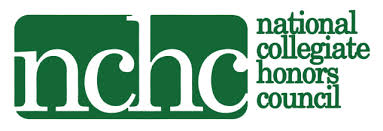Food and Society
Seminar - UHON 301
Instructor(s): Marygold Walsh-Dilley
Course Description
Course descriptions courtesy of former students in this class:
“Dear Future Student,
Get Excited! You are about to start what has been my favorite class, ever. Over the course of the semester you will learn about food’s connection to identity. In fact, food can say a lot about who you are as a person and where you come from. You will read a lot of fascinating articles about the origins of certain foods and the impact they have had on various cultures. Next, you will dive into food insecurity and participate in a challenge where you try to limit yourself to $6/day for food. Don’t worry if you don’t succeed, your grade isn’t dependent upon your success but rather what you learned from the experience. Lastly, you will look at conventional farming practices, climate change, and food production. I think the most important things for you to do to be successful in this class it to do the readings on time, show up to class, and be willing to share your thoughts (even if they aren’t fully developed yet). This class is about building community and having meaningful conversations. I’m sure you are going to love it! – Anna”.
“Dear Future Student,
Get ready for the ride of your life. This class will make you re-think everything you thought you knew about food and how it relates to our society and environment. Some of the key things you will learn about:
- Why people eat what they eat
- Food insecurity (surprisingly high)
- How agriculture has changed (small farms 🡪 corporate-style)
- The vast amount of structural issues that affect food, how it’s viewed, and how it’s eaten
Texts
The readings in this class are compiled in a course reader, available through the UNM Copy Center in Dane Smith Hall. They include short selections from the following books:
- Ferguson Accounting for Taste: The Triumph of French Cuisine
- Alvez “Colonization, Food, and the Practice of Eating’
- Ghosh The Nutmet’s Curse: Parables for a Planet in Crisis
- Tipton-Martin The Jemma Code: Two Centuries of African American Cookbooks
- Pilcher Que Vivan los Tamales: Food and the Making of Mexican Identity
- Fielding-Singh How the Other Half Eats: The Untold Story of Food and Inequality in America
- Hughes (ed) Best Food Writing
- Reese & Garth Black Food Matters
- Pollan Omnivore’s Dilemma: A Natural History of Four Meals
As well as other stories, essays, reports and various media including several podcasts and films.
Requirements
Assignments are presented as challenges because I want students to take risks and to recognize that even if you don’t succeed at some element of an assignment, you are still learning. Some of our challenges include:
- Recipe Challenge: making and sharing food (and learning about where they come from)
- Cookbook Challenge: examine and analyze a cookbook for the food ideologies it promotes
- SNAP Challenge: learning about the Supplementary Nutrition Assistance Program and experiencing the SNAP budget ourselves
- StoryMap Challenge: researching and mapping the commodity chain of a single food or ingredient
About the Instructor(s): Marygold Walsh-Dilley
Marygold Walsh-Dilley most recently mastered how to make fried plantains and Ecuadorian-style ceviche. She learned while on a research trip to study overlapping processes of agrarian and climate change in highland Ecuador. She is also writing a book about how to re-think our food system for climate resilience and social justice. She teaches classes on food studies, human-environment relations, social theory, and qualitative methods, in both the Geography Department and in Honors.



Social Media
For news, information, prizes and more fun stuff follow us on our social media!
Honors College Resources